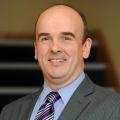
A WIRRAL doctor's work to transform services for patients brought into hospital after fainting has earned an international award.
Syncope is the medical term for fainting and Dr Mehran Asgari, Trust consultant cardiologist at Wirral University Teaching Hospital Trust has been recognised with an excellence award from STARS – the Syncope Trust and Reflex Anoxic Seizures Organisation.
As a global problem, Syncope will affect one in five of us during our lifetime.
Dr Asgari says the causes behind a faint that brings a patient into hospital are many.
Standing up too quickly when you have low blood pressure; being too hot, really angry, upset or in pain, could all result in us passing out.
Although not usually a sign of something serious, the temporary loss of consciousness could be a symptom of something more serious such as a heart condition.
Patients, especially when their faint resulted in an injury, can find themselves in the Emergency Department and then spend some time on a ward, while multiple tests are carried out to try to determine the reason they passed out.
Dr Asgari and many of his colleagues who see patients with syncope, there is no such thing as a simple faint.
Between five and seven percent of the emergency department attendances at WUTH could be coded as syncope, which is around 3,500 to 5,000 patients in just one year.
Dr Asgari recognised the need to develop guidelines in order to effectively manage the syncope patients and brought together a multidisciplinary team, to collaborate on the development of a Syncope Service and guidelines.
The aim of the team, which included colleagues from the emergency department, acute medicine, stroke, cardiology and primary care, was to produce a clear pathway for emergency departments and general practitioner referrals, which would lead to patients being more appropriately investigated, managed and referred.
Dr Asgari said: "When a patient comes into hospital, it is crucial to start with a detailed history of the circumstances surrounding their fainting episode.
"Early evidence shows that this is helping to identify patients who can safely be discharged on the same day, for follow up in a dedicated syncope clinic.
"The Syncope Guidelines as well as the referral pathway will simplify the process of diagnosis and management for the doctors involved.
Moreover, the application of the guidelines is helping 'patient flow' in the face of increased pressure on hospital beds.”
Dr Nikki Stevenson, executive medical director, deputy chief executive and consultant respiratory physician at WUTH said: "I'd like to congratulate Dr Asgari for this Excellence Award, which recognises his outstanding work.
"This benefits both patients, by preventing unnecessary hospital stays and diagnostic tests, and the Trust by saving resources that can be used on other frontline services."



Comments: Our rules
We want our comments to be a lively and valuable part of our community - a place where readers can debate and engage with the most important local issues. The ability to comment on our stories is a privilege, not a right, however, and that privilege may be withdrawn if it is abused or misused.
Please report any comments that break our rules.
Read the rules hereLast Updated:
Report this comment Cancel